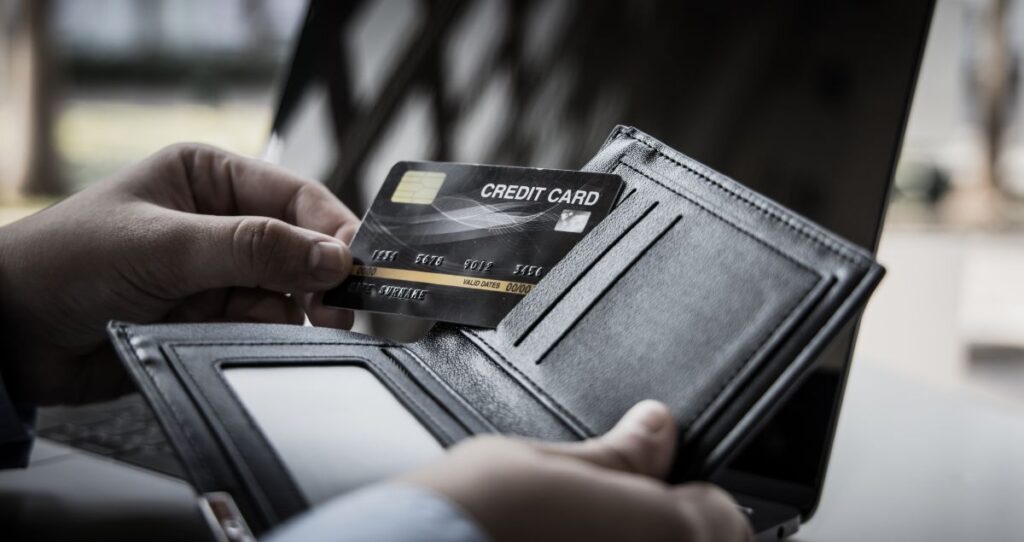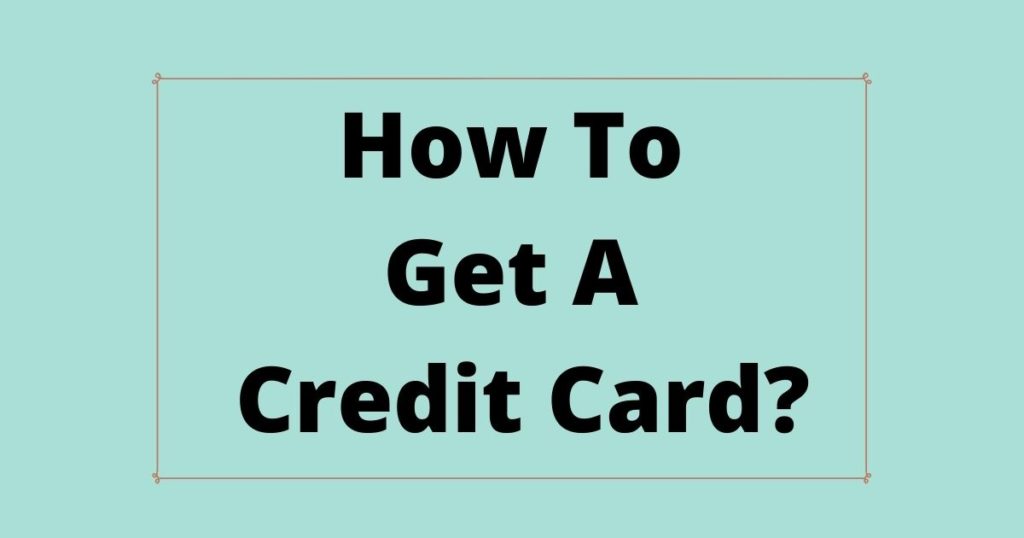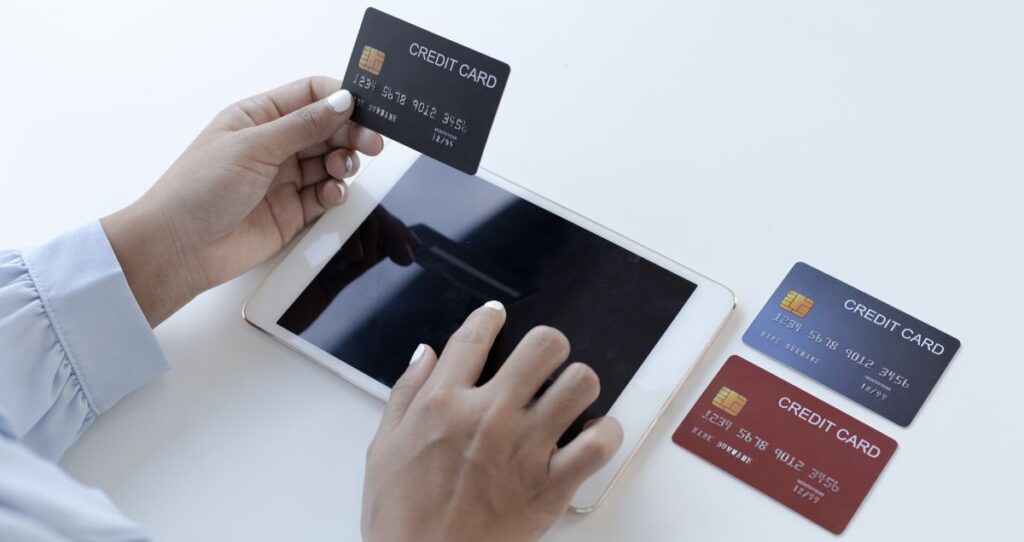You probably heard that there are dangers of credit cards and can ruin your credit if you are not careful. That is true. Credit cards are not necessarily bad. However, they can be bad if you do not use them carefully. So, what makes credit cards bad, and what things should watch out for when using credit cards?
Before I tell you the dangers of credit cards, I want to emphasize that credit cards are a great way to spend money on your necessities due to a lot of perks such as cash backs, discounts, mile points, etc.
So, if you have cash and want to buy something, make the purchase with a credit card. Then use that cash to pay off that credit card. This will allow you to pay less on your purchase and build your credit history and credit score at the same time.
If you can get all these benefits from your credit cards, why are they dangerous? What kind of hidden dangers of using credit cards?
In this article, I will go over the dangers of credit cards and what makes credit cards bad.
Let’s get into it.
1. It is easy to get into credit card debts but hard to pay them off
Consumer debts are some of the easiest ones to accumulate. This is because you borrow money for daily spending without any financial goals behind your spending. Besides, these debts have fewer restrictions compared to other loans such as a mortgage, etc.
What makes credit cards trickier is that the credit limit you have on each card is like ready-to-use money. The bank says, “I don’t care what you do with the money. Just use it.”
Most people just swipe cards and spend extravagantly without remembering that they are getting in debt. They treat their credit card credit limits as free money until they are asked to pay it off.
A higher APR makes it difficult to pay off credit card debts.
According to LendingTree, the average credit card Annual Percentage Rate (APR) as of July 2022 is 15.13%. This rate is much higher than what you could pay for many financial products. On top of a higher APR, most credit cards come with compound interest. This means that interest charges you pay on the outstanding balance get added to the principal. The interest is then recalculated based on the new balance. As a result, you end up paying higher interest charges. Without taking action, your debt could grow exponentially.
Related: What is a good APR for a credit card?
2. Carrying over the balance to the next payment cycle
If you use credit cards and pay off every dollar you spend, you will be fine with credit cards. By paying off every dollar you spent on each credit card, you:
- Avoid paying late fees and charges(in case you did not meet the minimum required payment)
- Never have to worry about interest, and more importantly,
- You never have to worry about credit card debts
That is how you avoid the dangers of credit cards. Unfortunately, only a handful of people are able to accomplish this goal.
Most people carry balances to the next payment cycle. This result in interest, fees, and other charges. That is how there are millions of people who are struggling with consumer debts around the globe.
If you want to avoid some of the common dangers of credit cards, start by avoiding carrying balances on your credit cards.
Related: 9 Things to know before getting a credit card
3. Applying for/having too many credit cards
One of the most common dangers of credit cards is having too many credit cards.
Having a few credit cards is not a bad thing. A small number is always manageable and easy to track.
Why is it a bad thing to keep too many credit cards?
Each credit card comes with its own balance due date and statement closing date.
On top of that, each credit card has its own rules that you must keep up with. This makes it difficult to manage and track many credit cards. Most people just spend. Later, realize that they missed payments on some of the cards. Some people have even more than 20 different credit cards. Nothing good comes out of having this many credit cards.
If you can’t manage your credit cards, you end up building credit card debts, wrecking your credit score, etc. It is always important to use credit cards in a systematic way that helps you save money but also increases your credit score and builds credit at the same time.
You don’t want to save a few bucks here and there while destroying your credit and credit score.
You should also remember that each credit card you apply for(whether accepted or denied) comes with a hard inquiry on your credit report. Each hard inquiry reduces your credit score by 5 to 6 points. Others can reduce your score up to 10 points.
You can see that by accumulating more credit cards, you end up messing up your credit score and credit history.
Wrecking up your own credit score and credit history is one of the biggest dangers of credit cards that a few people talk about. Everywhere you do, they are talking about credit cards and you are signing up. You need to outsmart them. If you don’t need a credit card, don’t sign up for it.
Related: How many credit cards should I have?
4. Withdrawing money from your credit cards
When you withdraw money from your credit card, the process is known as a cash advance. Credit card providers do not encourage cash advances. Before you take money from your cashier register or from an ATM, remember that cash advance is one of the dangers of credit cards that are rarely talked about.
Although some credit cards allow you to withdraw money from them; you should never consider this option. This is because you end up paying a different and higher APR and ballooned charges.
According to Forbes, you should expect to pay anywhere between 17.99% to 29.99% APR when you withdraw money from your credit card. This is a very high interest that you should avoid as much as possible. Cash advance also comes with a fee of $10 or 5% depending on what is higher.
In addition, many companies do not allow you to borrow a lot of money. Do not be surprised if you can only withdraw $200 from your credit card.
From a financial perspective, the cost of withdrawing money from your credit card outweighs the benefits.
Related: Can you withdraw money from a credit card?
5. Missing your payments and late payments
Your payment history is the biggest thing that affects your credit score. 35% of your credit score is affected by your payment history.
It will be recorded on your credit report if you miss a payment or have a late payment. This will have a direct negative effect on your credit score. Late payment will lower your credit score by as much as 90 to 110 points and will stay on your credit report for up to 7 years. Some lenders report late payments to credit reporting bureaus(Equifax, TransUnion, Experian) 30 days after the due date.
If you are late for a few days, your late payment might not affect your credit score (assuming that it was not reported by your lender).
However, your lender will still apply charges and fees for the late payments if you did not pay the minimum payment required. Finally, your APR will be applied to the balance you are carrying over to the next payment period which might lead to accumulating credit card debts.
This is why missing a payment or having a late payment is one of the dangers of credit cards you need to avoid. Always make your payments on time.
6. Spending too much of your credit limit
Another danger of credit cards is using too much of your credit limits. You see, the bank gives you an amount you can spend on each credit card. But, spending all of it is regarded as a negative thing.
Why? Because it shows lenders that you are relying on debt to cover your expenses. If you want to spend most or all of your available limit, make sure that you have enough cash to pay it off before the due date. This way, you will not carry it to the next payment cycle. As a result, it will not affect your credit score.
Each credit card comes with its own credit limit. A credit limit is nothing other than the available amount you can spend on that card. For example, if your credit limit is $1,000, it means you can spend up to $1,000. Once everything is spent, you must pay off some of that balance in order to use the card again.
More reading: How to increase credit limit? Credit line increase
The percentage of the amount you have spent on each credit card is called credit utilization or credit usage. Back to our example, if you spent $500 on the card we just discussed in our example, your credit utilization will be 50%. That is you spent half of your available credit.
Credit utilization affects your credit score by 30%. The higher your credit ratio, the lower your credit score will get. Many lenders suggest keeping your utilization under 30%.
I honestly think that 30% utilization is still too high. A good percentage for me is to stay under 10%. A low utilization helps you increase your credit score faster and it is easy to pay it off every single month.









